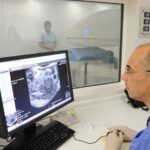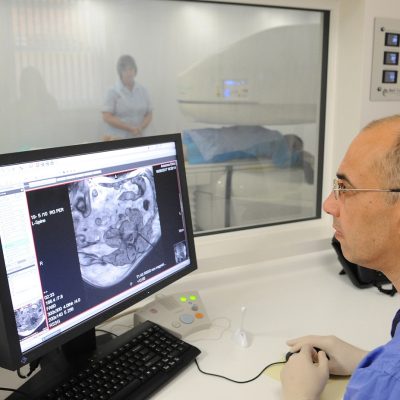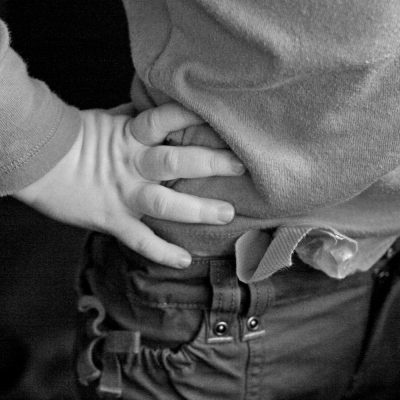Neque porro quisquam est qui dolorem ipsum quia dolor sit amet, consectetur, adipisci velit
The knee is the largest joint in the body. The knee allows the leg to bend where the femur (thighbone) attaches to the tibia (shinbone). There are a variety of structures that surround the knee and allow it to bend and that protect the knee joint from injury. The quadriceps and hamstring muscles are responsible for moving the knee joint. These muscles are also important in protecting the knee from being injured by acting to stabilize the knee and preventing it from being pushed in directions that it isn’t meant to go.
In addition, there are four internal ligaments that stabilize the knee joint: the medical and lateral collateral ligaments (MCL, LCL) and the anterior and posterior cruciate ligaments (ACL, PCL). The articular cartilage lines the surfaces of the bones within the knee joint. There are also the medial and lateral menisci which are two thicker wedge C-shaped pads of cartilage between the femur and tibia surfaces. Cartilage within the joint provides the cushioning to protect the bones from the routine stresses of activities
A torn knee cartilage often refers to damage to one of the knee menisci. The meniscus can be damaged because of a single injury event often occur during athletic activities, especially in contact sports like football and hockey. A forceful twist can cause the end of the femur to grind into the top of the tibia, pinching and potentially tearing the cartilage of the meniscus. Motions that require pivoting and sudden stops, in sports like tennis, basketball, and golf, can also cause meniscus damage. The meniscus may be torn because of gradual wear out as we grow older and because of overuse, causing degenerative tears. It is estimated that six out of 10 patients older than 65 years have a degenerative meniscus tear.
Meniscus tears may be associated with other knee injuries such as tears of the collateral and cruciate ligaments, damage to the articular cartilage, bone bruise or bone fractures.
Sometimes meniscal tears do not cause symptoms. At the time of injury, the patient may actually hear or feel a pop in their knee followed by acute pain. Swelling of the knee due to fluid collection (effusion) may occur but this may take a few hours to develop. There may be sudden restriction of knee movement as the torn meniscus block its full extension. This occurs when a piece of torn meniscus folds on itself and blocks full range of motion of the knee joint. This is referred to as locked knee.
After the injury, the knee joint irritation may gradually settle down and feel relatively normal as the initial inflammatory response resolves. However, other symptoms may develop over time and may include any or all of the following:
- Pain with running or walking longer distances
- Intermittent swelling with tightness sensation of the knee.
- Popping, especially when climbing up or down stairs
- Giving way, that is the sensation that the knee is unstable
- Intermittent knee locking
While physical examination may suspect that the meniscus is torn, further investigation by Magnetic Resonance Imaging (MRI) is needed to confirm the diagnosis. It is a noninvasive test that can visualize the inner structures of the knee, including the cartilage and ligaments, the surface of the bones, and the muscles and tendons that surround the knee joint.
The treatment of a meniscus tear depends on its severity, location, and underlying disease within the knee joint. Patient circumstances also may affect the treatment options. It is possible to treat meniscus tears conservatively without an operation using anti-inflammatory medications, injection therapy and physiotherapy to strengthen muscles around the knee to prevent joint instability. Patients involved in sport, whose work is physically demanding or when the pain is interfering with daily activities may require surgery.
At Peterborough premier private clinic, Avicenna clinic, we have a range of specialist consultants and state-of-the-art imaging department including the only open MRI in the area to deal with all cases of acute and chronic pain quickly and to deliver tailored comprehensive treatment plans. To book consultation or for more information, please contact Avicenna Clinic on Tel 0330 202 0597.












